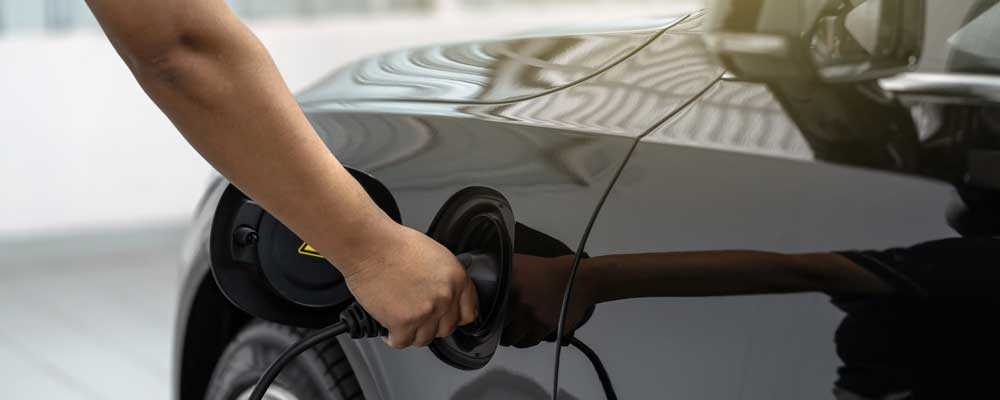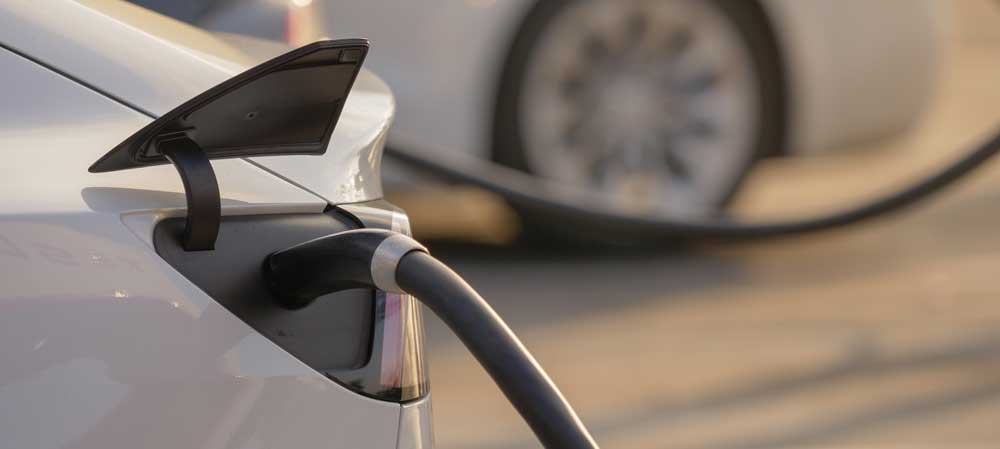Table of Contents
- Type 1 (J1772) EV Charging Connector
- Type 2 (Mennekes) EV Charging Connector
- CCS (Combined Charging System) Connector
- Type 2 Charging Cable
- CCS Type 1 to Type 2 Adapter
EV Charging Connector Types –Electric vehicles (EVs) are rapidly gaining popularity as a sustainable mode of transportation. However, to keep these vehicles running, they need to be charged regularly. EV charging connectors play a crucial role in this process, as they determine how the vehicle can be charged and at what speed.
There are three main types of EV charging connectors: Type 1 (J1772), Type 2 (Mennekes), and CCS (Combo Charging System). Each type of connector has its own unique characteristics and is compatible with specific electric vehicles. (More info on – Buying an Electric Car in Ireland)
The purpose of this article is to demystify the different EV charging connector types and provide relevant information to help you understand which type of connector is right for your electric vehicle. (More info on – Commercial EV charger installation)
Type 1 (J1772) EV Charging Connector
The Type 1 connector, also known as the J1772 connector, is the most common type of charging connector in North America. It is compatible with electric vehicles manufactured by American and Japanese automakers.
Compatibility with Electric Vehicles
The Type 1 connector is compatible with electric vehicles such as the Nissan Leaf, the Chevrolet Volt, and the Toyota Prius Prime, among others.
Pros and Cons of the Type 1 Connector
Pros:
- Widely available at EV public charging points and home charging stations
- Compatible with a large number of electric vehicles
- Relatively cheap compared to other connector types
Cons:
- Not as fast as other connector types, resulting in longer charging times
- Not as widely used outside of North America, making it less convenient when traveling in other countries
Type 2 (Mennekes) EV Charging Connector
The Type 2 connector, also known as the Mennekes connector, is the most common type of charging connector in Europe. It is compatible with electric vehicles manufactured by European automakers.
Compatibility with Electric Vehicles
The Type 2 connector is compatible with electric vehicles such as the BMW i3, the Renault Zoe, and the Volkswagen e-Golf, among others.
Pros and Cons of the Type 2 Connector
Pros:
- Faster charging times compared to the Type 1 connector
- More widely used in Europe, making it more convenient when traveling in that region
- Can be used with a variety of EV charging cables and plugs
Cons:
- Less widely available at public charging points and home charging stations outside of Europe
- Not as widely compatible with electric vehicles compared to the Type 1 connector
- Can be more expensive compared to the Type 1 connector.
CCS (Combined Charging System) Connector
The CCS connector, also known as the Combined Charging System, is a type of charging connector that is used for fast charging of electric vehicles. This type of connector is a combination of the type 1 and type 2 connectors, and has a secondary connection in addition to the main type 1 or type 2 connection. This secondary connection allows for high-power charging, making it possible to charge an electric vehicle in a much shorter time than with a standard type 1 or type 2 connector.
Compatibility with Electric Vehicles
The CCS connector is becoming increasingly popular, and is being adopted by many electric vehicle manufacturers. As a result, more and more charging stations are being equipped with CCS charging ports, making it easier for electric vehicle owners to access fast charging. However, not all electric vehicles are compatible with CCS connectors, so it’s important to check the specifications of your vehicle before purchasing a CCS charging port or adapter. (More info on – EV Charging Station Contractors)
Pros and Cons of the CCS Connector
The biggest advantage of the CCS connector is its fast charging capabilities, which allow for an electric vehicle to be charged much faster than with a standard type 1 or type 2 connector. However, it can also be more expensive to purchase a CCS connector or adapter, and not all charging stations are equipped with CCS ports, so it may not be possible to access fast charging in some areas.
Type 2 Charging Cable
The type 2 charging cable is a type of charging cable that is specifically designed for use with type 2 EV charging connectors. This type of cable is commonly used in Europe and is becoming increasingly popular in other parts of the world as more charging stations adopt type 2 connectors.
Importance of Using the Correct Type 2 Charging Cable
It’s important to use the correct type of charging cable when charging your electric vehicle, as using the wrong type of cable can result in slower charging times or even damage to your vehicle’s battery or charging port. When using a type 2 charging connector, it’s important to use a type 2 charging cable, as using a different type of cable can result in compatibility issues.
Advantages of Using the Type 2 Charging Cable
The main advantage of using a type 2 charging cable is that it is specifically designed for use with type 2 charging connectors, which means that it will work more efficiently and effectively than other types of cables. Using a type 2 charging cable can also help to protect your electric vehicle’s battery and charging port, as it ensures that the correct power levels are being supplied during the charging process.
CCS Type 1 to Type 2 Adapter
The CCS type 1 to type 2 adapter is an adapter that allows electric vehicles with type 1 charging ports to be charged using type 2 charging stations. This type of adapter is becoming increasingly popular as more charging stations adopt type 2 connectors, as it provides greater flexibility and convenience for electric vehicle owners.
Use of the Adapter to Charge Vehicles with Type 1 and Type 2 Charging Ports
The CCS type 1 to type 2 adapter can be used to charge vehicles with type 1 charging ports at type 2 charging stations. This makes it possible to access fast charging even if your vehicle is not equipped with a type 2 charging port, and provides greater flexibility when traveling or using public charging points.
Pros and Cons of Using the Adapter
Pros:
- Flexibility: The biggest advantage of using the CCS Type 1 to Type 2 adapter is the flexibility it provides. With this adapter, electric vehicle owners can charge their vehicles at any type of charging station, regardless of the charging connector type.
- Convenient Charging: This adapter also allows EV owners to easily charge their vehicles when traveling to different countries where the charging connector type may differ.
Cons:
- Cost: One of the biggest disadvantages of using the CCS Type 1 to Type 2 adapter is the cost. This adapter can be relatively expensive compared to other charging options.
- Bulky: Another disadvantage is that the adapter can be relatively bulky and difficult to carry around.
- Compatibility Issues: It is important to note that the adapter may not be compatible with all-electric vehicles, so it is important to check before purchasing. Additionally, the adapter may not be compatible with some charging stations, which could result in slower charging times or no charging at all.
The CCS Type 1 to Type 2 adapter offers convenient and flexible charging options for EV owners, but it also comes with its own set of pros and cons. Before making a purchase, it is important to carefully consider the specific needs and requirements of your electric vehicle, as well as your budget.

FAQs About EV Charging Connector Types
-
What are the different types of EV charging connectors?
There are three main types of EV charging connectors: Type 1 (J1772), Type 2 (Mennekes), and CCS (Combined Charging System).
-
Which EV charging connector type is right for my electric vehicle?
The right EV charging connector type for your electric vehicle depends on the make and model of your vehicle. Type 1 is most common in North America, Type 2 is most common in Europe, and CCS is becoming increasingly popular for fast charging.
-
Can I use an adapter to charge my electric vehicle with a different type of charging connector?
Yes, adapters are available to allow electric vehicles with one type of charging connector to be charged with a different type of charging station. However, it’s important to make sure the adapter is compatible with both the charging station and your vehicle before using it.
-
Do I need to use a specific type of charging cable with my EV charging connector?
Yes, it’s important to use the correct type of charging cable when charging your electric vehicle to ensure compatibility and prevent potential damage to your vehicle’s battery or charging port.
-
What are the advantages and disadvantages of each type of EV charging connector?
Each type of EV charging connector has its own unique characteristics and pros and cons. For example, Type 1 is widely available in North America and compatible with many electric vehicles, but not as fast as other types. Type 2 is faster than Type 1 and more common in Europe, but less widely available outside of Europe. CCS is a combined system that allows for fast charging, but may be more expensive and not compatible with all-electric vehicles.
Related searches: Types of EV charging connectors, EV charger connector types, Electric vehicle charging connector types, EV charging plug types, Electric car charging connector types, Types of charging cables for electric vehicles, Different types of EV chargers, EV charging station connector types, Electric car charger plug types, Types of electric car charging ports.
Ever wondered about EV Chargers Ireland…..Read our latest blog post for details.



